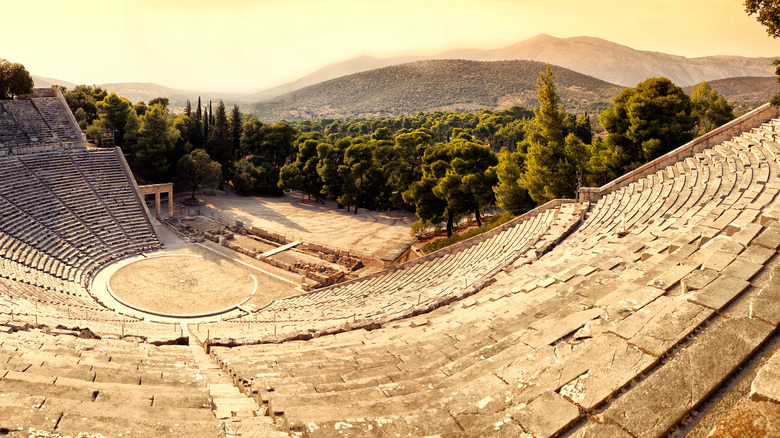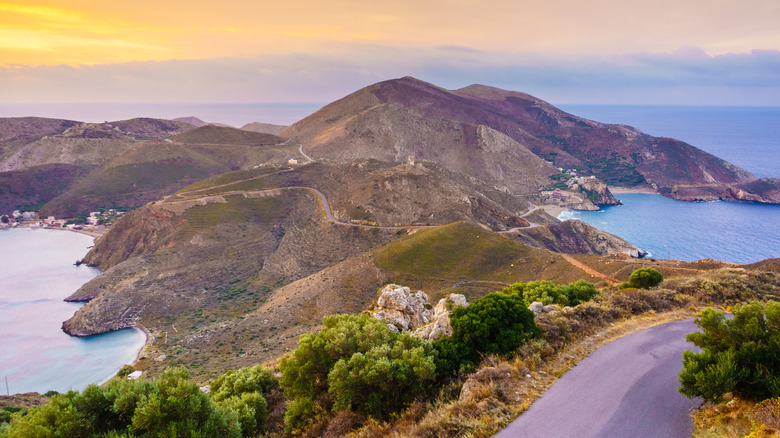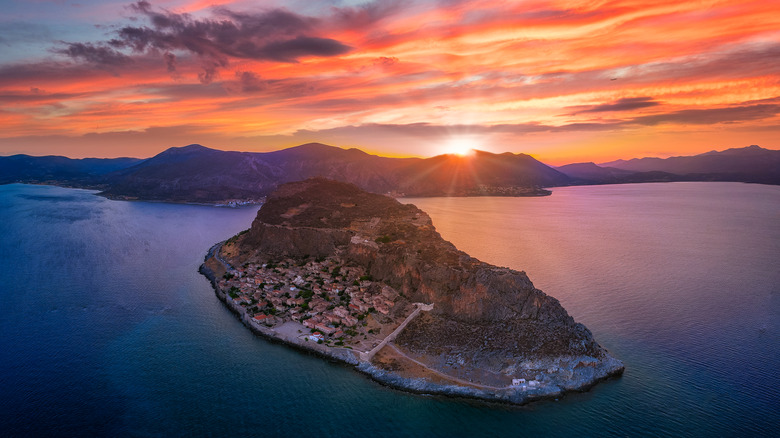Rick Steves heads to the Peloponnese peninsula in the southwest corner of Greece for “less glitz, lower prices, and more substantial sightseeing” than in other parts of the country, he says in the Rick Steves blog. The region combines pristine beaches, charming villages, and majestic mountains along with authentic Greek culture and local traditions. The only thing missing is throngs of tourists, who tend to flock to Athens and Greek island hotspots, says Steves. While those tourists jostle for prime sunset views on Santorini or scramble for a sliver of beach on Mykonos, Steves finds solace in Peloponnese villages, where he can leisurely sip retsina (the local wine) and observe the everyday life of locals.
Steves notes in his blog that “like its wine, the Peloponnese is rough, but with a complex history.” This makes it a fascinating place to visit for those willing to seek out its archaic gems, which are scattered across 8,278 square miles of wild landscape. On the peninsula’s western side is ancient Olympia, where spectators watched athletes compete in the first Olympic Games in 776 BC. Down on the southeast tip lies the incredible walled city of Monemvasia. The 8,000-year-old town and former military hub of the Byzantine Empire is often called the “Gibraltar of the East” as it sits on an enormous rock just off the coast, connected to the mainland only by a thin causeway and bridge.
Ancient ruins and quaint towns

All the way on the east side of the Peloponnese region are the magnificent ruins of Mycenae, the capital city of a civilization that ruled Ancient Greece from 1600 to 1200 BC. The renowned Lion Gate at the city’s citadel entrance dates back to around 1250 BC. Constructed with gigantic stones, the gate is a miracle of Mycenaean architecture and engineering. Other well-preserved and culturally significant ruins can be found 30 miles northwest at Epidavros, which has “the most magnificent theater from the ancient world,” says Steves in his blog. Ancient Greek dramas are performed in the theater during summer.
Along the Peloponnese coast between Mycenae and Epidavros is what Steves considers the region’s most beguiling town, the seaside town of Napflio, known for its stunning castles, lovely beaches like Karathona and Arvanitia, and enchanting Old Town, with its mix of architectural styles. The compact, walkable town also has a vibrant restaurant scene and nightlife — all this, and yet somehow, it remains under the tourism radar.
Getting to and around the peninsula

In his blog, Steves highlights another great thing about the Peloponnese peninsula: Unlike the Greek Islands, you don’t need to take a flight or ferry to get there. It’s connected to the mainland via the Isthmus of Corinth, which is only a 47-mile drive or bus ride from Athens. However, if you prefer to arrive by ferry — a relaxing option if you have the time — you can do that too. There are several ports in the region, the largest being in the northern city of Patra, with service between there and the Italian ports of Ancona, Bari, Brindisi, Trieste, and Venice. Ferries also run between Patra and the Greek islands of Corfu, Ithaca, and Kefalonia.
Once you reach the peninsula, intercity buses (KTEL) are convenient and plentiful, but a car will give you the most freedom to explore remote areas, like the Mani peninsula on the peninsula’s southwest side. This is an area that’s particularly fascinating to Steves, per his blog. He notes, “Its landscape is empty like few other places in Europe are, with a sparse, almost Wild West feel.” The area is famous for the Diros Caves — dark, watery, stalactite-studded palaces eerily reminiscent of Hades — and the Maniat towerhouses, which local clans used as fortresses when feuding over land.

